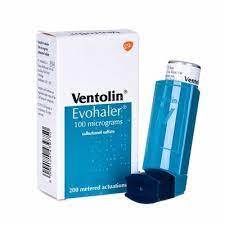A Comprehensive Guide to Using Albuterol Inhalers Safely and Effectively(albterol sulfate )
Introduction in regards to albuterol sulfate
Albuterol (also known as salbutamol) is a bronchodilator commonly used to prevent and treat wheezing, shortness of breath, and exercise-induced asthma. It belongs to a class of drugs known as bronchodilators, which work by relaxing the muscles in the airways, making breathing easier. In this blog post, we will explore how to use albuterol inhalers properly, discuss potential side effects, and provide essential precautions for safe usage. Let’s dive in!
How to Use albuterol sulfate 90 Mcg/Actuation Breath Activated Powder Inhaler:
Before using albuterol sulfate inhalers, it’s crucial to read the Patient Information Leaflet and Instructions for Use provided by your pharmacist. Familiarize yourself with the illustrated directions for proper usage. If you have any questions or concerns, consult your doctor or pharmacist for clarification.
Some brands of albuterol inhalers come with a built-in sensor that can store data on its use. While using the accompanying smartphone application (app) is optional, it allows you to review and share usage data with your healthcare provider for monitoring purposes. Follow the manufacturer’s instructions to set up and use the app if you choose to do so.
To inhale albuterol medication, follow these steps:
Hold the inhaler upright and open the cap, ensuring you hear a click, indicating it is ready for use.
Place the mouthpiece near your mouth and breathe out comfortably, ensuring not to breathe into the inhaler device.
Put the mouthpiece in your mouth, close your lips around it, and breathe in steadily and deeply.
Hold your breath for about 10 seconds or as long as is comfortable.
Close the cap after each use.
Remember not to use a spacer with this inhaler and avoid opening the cap unless you are ready to take a dose. Additionally, clean the outside of the mouthpiece with a dry tissue or cloth as needed. Do not use water or any other liquid for cleaning, as it may interfere with the inhaler’s functionality. If the inhaler comes into contact with liquid, replace it to ensure proper functioning.
If a child is using this medication, a parent or responsible adult may need to assist in ensuring the inhaler is used correctly.
Dosage and Usage Precautions in view of albuterol sulfate
The dosage of albuterol sulfate inhalers is based on your medical condition and response to treatment. It’s crucial not to increase your dose or use the drug more frequently than prescribed without your doctor’s approval. Exceeding the recommended dosage can increase the risk of serious side effects.
If you are using albuterol sulfate to prevent exercise-induced asthma, it is advised to use it approximately 15 to 30 minutes before exercising.
It’s important to note that albuterol inhalers are quick-relief medications and should always be accessible when needed. Keep track of the number of inhalations used from each device and discard the inhaler after you have used the number of inhalations indicated on the manufacturer’s package.
Side Effects and Precautions in regards to albuterol sulfate
Common side effects of albuterol sulfate inhalers may include nervousness, dizziness, shaking (tremor), headache, nausea, dryness or irritation of the mouth or throat, or an unusual taste. These side effects are typically mild and temporary. However, if they persist or worsen, promptly inform your doctor or pharmacist.
Albuterol may raise blood pressure, so it’s essential to monitor your blood pressure regularly and inform your doctor if the results are high.
While serious side effects are rare, contact your doctor immediately if you experience fast or pounding heartbeat, chest pain, irregular heartbeat, rapid breathing, confusion, or a severe allergic reaction characterized by rash, itching/swelling (especially of the face/tongue/throat), severe dizziness, or trouble breathing.
Before using albuterol sulfate, inform your doctor or pharmacist if you are allergic to it or similar drugs, or if you have any other allergies. Certain inactive ingredients present in the medication can cause allergic reactions or other complications. Discuss your medical history, especially heart problems, high blood pressure, or seizures, with your healthcare provider before using albuterol.
Interactions with Other Medications in regards to albuterol sulfate
albuterol sulfate may interact with other drugs, potentially altering their effectiveness or increasing the risk of side effects. Maintain a list of all the products you use, including prescription/nonprescription drugs and herbal products, and share it with your doctor and pharmacist to avoid potential interactions. Do not start, stop, or change the dosage of any medications without your doctor’s approval.
Albuterol inhalers are very similar to those containing levalbuterol. Therefore, it’s essential not to use medications containing levalbuterol while using albuterol inhalers.
Conclusion in light of albuterol sulfate
Albuterol inhalers are effective in managing breathing problems such as wheezing and shortness of breath associated with asthma. By following the proper usage instructions and taking necessary precautions, you can use albuterol inhalers safely and effectively. Remember to consult your healthcare provider for personalized guidance and to address any concerns or questions you may have. Your doctor will determine the appropriate dosage and frequency of use based on your specific needs. If you experience any concerning side effects or have difficulty managing your symptoms, seek medical attention promptly.


